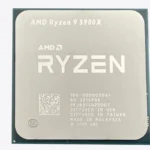That burning smell coming from your washing machine is a clear sign that something’s amiss and requires your immediate attention. Ignoring it could lead to more extensive and costly repairs down the line, or even a potential fire hazard. This guide will help you pinpoint the most common culprits behind that alarming odor, from a worn-out drive belt to a clogged drain pump or an overloaded motor. We’ll walk you through some simple troubleshooting steps to identify the source of the problem. Remember, safety first! If you’re unsure about any of these checks, it’s always best to contact a qualified appliance repair technician. Don’t risk further damage or put yourself at risk. Let’s get to the bottom of that burning smell and keep your laundry routine running smoothly.
Troubleshooting a Burning Smell from Your Washing Machine
Common Causes of a Burning Smell
A burning smell coming from your washing machine is never a good sign. It usually means something is overheating or starting to fail. Here are some of the most common causes:
- Worn-out drive belt: The drive belt is a rubber belt that connects the motor to the drum. If the belt is old or worn, it can slip or break, causing friction and a burning smell.
- Overloaded motor: If you overload your washing machine with too many clothes, the motor has to work harder. This can cause it to overheat and produce a burning smell.
- Electrical problems: A faulty wire or connection can also cause a burning smell. This is a serious issue that should be addressed by a qualified technician immediately.
- Clogged drain pump: If the drain pump is clogged, it can cause the motor to overheat and produce a burning smell.
- Faulty drain pump: The drain pump itself can also fail, which can also cause a burning smell.
- Problems with the clutch: The clutch is a mechanism that engages and disengages the washing machine’s spin cycle. If the clutch is faulty, it can cause a burning smell.
Identifying the Source of the Problem
To identify the source of the burning smell, you’ll need to do some troubleshooting. Here are a few things you can check:
- Check the drive belt: Inspect the drive belt for any signs of wear and tear. If the belt is frayed, cracked, or loose, it needs to be replaced.
- Check the motor: If the motor is hot to the touch, it may be overheating. Try reducing the load size in your washing machine.
- Check for any loose wires or connections: If you see any loose wires or connections, tighten them or replace them as needed.
- Check the drain pump: Make sure the drain pump is not clogged. You can also check the drain pump for any signs of damage.
- Check the clutch: If the burning smell is strongest during the spin cycle, the clutch may be faulty.
When to Call a Technician
If you are not comfortable troubleshooting the problem yourself, or if you cannot identify the source of the burning smell, you should call a qualified technician. Do not continue to use the washing machine if you smell burning, as this could cause further damage or even a fire.
Maintaining Your Washing Machine
Regular maintenance can help prevent many common washing machine problems, including burning smells. Here are a few tips:
- Clean the lint filter regularly: The lint filter traps lint and other debris that can clog the drain pump.
- Don’t overload the washing machine: Overloading the washing machine can put a strain on the motor and other components.
- Use the correct detergent: Using the wrong detergent can damage the washing machine.
- Leave the door slightly ajar after each use: This will help to prevent mold and mildew from growing inside the washing machine.
- Have the washing machine serviced regularly: A qualified technician can inspect the washing machine for any potential problems.
By following these tips, you can help to keep your washing machine running smoothly and prevent burning smells.
Why Your Washing Machine Has a Burnt Odor
Friction from the Drive Belt
A burning rubber smell often stems from the drive belt. This component connects the motor to the drum. Over time, it can wear out or become loose. When this happens, the belt rubs against other parts, creating friction and heat. This friction leads to a burnt rubber odor. Check the belt for signs of fraying or splitting. If damaged, replace it promptly.
Electrical Component Issues
Sometimes, the burnt smell is not rubbery but more like an electrical fire. This indicates a potentially serious problem. Water leaks can cause shorts in the electrical system. Sparks may occur, leading to a burning smell. Inspect for water near electrical parts. Look for burn marks on wires or circuit boards. Addressing these issues quickly is crucial to prevent further damage or safety hazards.
Drain Pump Belt Problems
Many washers use a separate belt for the drain pump. This V-shaped belt connects the motor to the pump pulley. It helps open and close the drain. If you notice a burning smell during the drain cycle, examine this belt. It may be worn, stretched, or damaged. A faulty pump belt can cause excessive friction and heat. Replace it if you see any signs of wear or damage.
Motor Pulley Wear and Tear
The motor pulley plays a key role in washing machine operation. It connects to belts that drive the drum and drain functions. Normal use causes some friction. But if the pulley becomes stuck or misaligned, it creates excess heat. This can result in a burning smell. Check the pulley for smooth movement. Look for debris or damage that might cause it to jam. Clean or replace the pulley as needed to prevent further issues.
• Signs of pulley problems:
- Unusual noises during operation
- Visible wear on the pulley surface
- Difficulty in drum rotation
- Burning smell intensifies during spin cycles
Regular maintenance can prevent many of these issues. Clean your washing machine monthly. Run empty cycles with hot water and vinegar. This helps remove buildup and keeps components working smoothly. Always unplug the machine before inspecting internal parts. If you’re unsure about repairs, consult a professional technician.
Addressing Burning Odors from Your Washing Machine
Inspect and Switch Out the Drive Belt
A faulty drive belt often causes burning smells in washing machines. To check this:
- Unplug the washer
- Tilt it on its back
- Look underneath for the belt
Check for:
- Fraying
- Wear marks
- Breakage
If you spot damage, replace the belt. Also examine the rubber coupler connecting the motor and transmission. Replace if worn.
Handle Water Leaks on Electrical Parts
Water on electrical components is dangerous. If you suspect this:
- Unplug the washer immediately
- Call a professional repair service
For minor leaks:
- Open the top lid carefully
- Look for water near electrical parts
- Check intake and drain tubes for damage
- Patch or replace damaged tubes
Fix or Replace the Pump Belt
The pump belt links the motor to the drain pump. It can cause burning smells if:
- Frayed
- Broken
- Misaligned
To fix:
- Locate the belt under the washer
- Check for damage
- Replace if worn
- Realign if off the pulley
Clean or Swap Out Pulleys
Pulleys guide belts around the washer. They can cause issues if:
- Damaged
- Worn
- Dirty
To address:
- Access pulleys from under the washer
- Remove debris
- Look for rubber bits or dust below
- Replace pulleys and belts if badly worn
These steps help solve common causes of burning smells in washers. Always prioritize safety. Unplug the machine before any repairs. Call a pro for complex issues.







